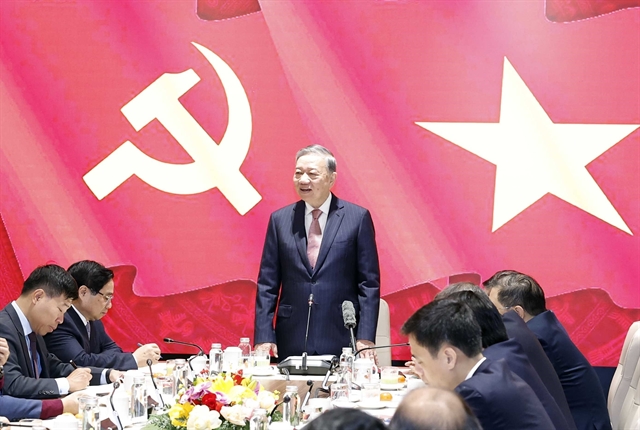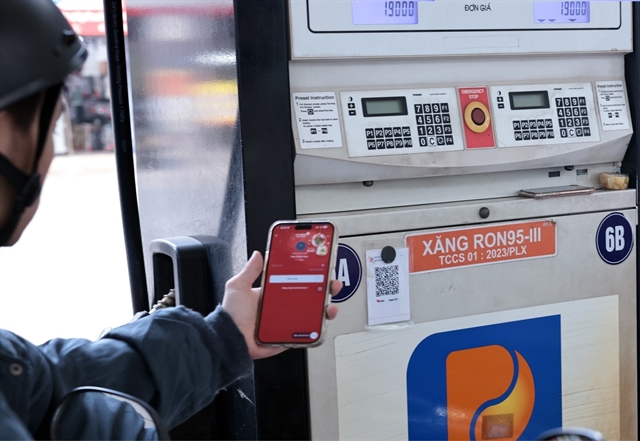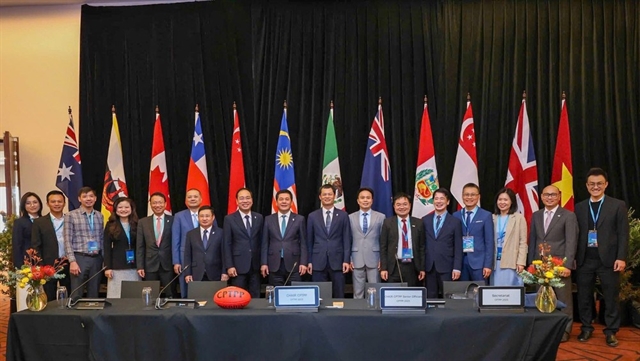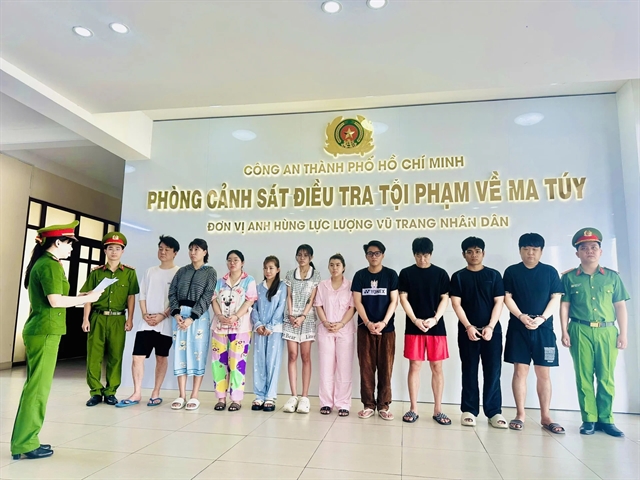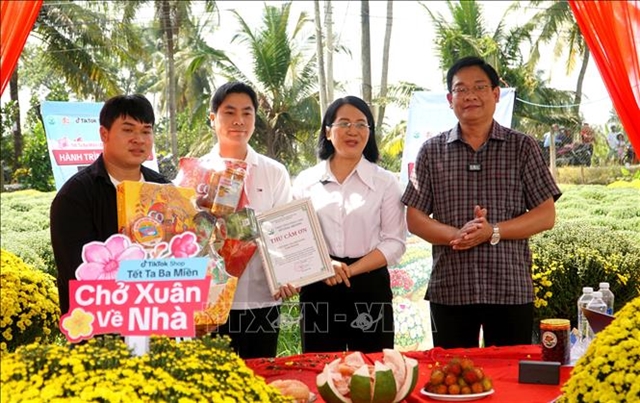 Economy
Economy
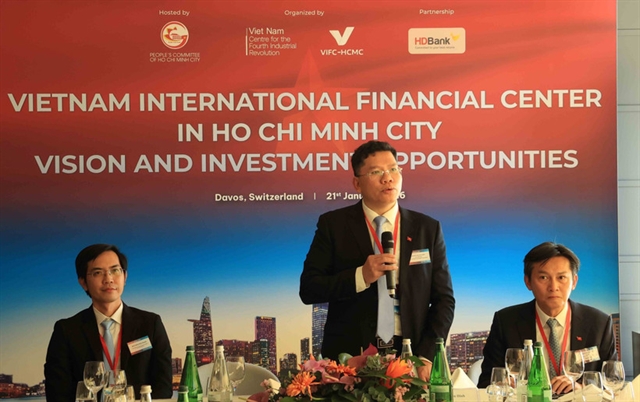
Vietnamese Prime Minister Nguyễn Xuân Phúc and leaders of other Greater Mekong Subregion (GMS) countries attended the Mekong-Japan Business Forum in Tokyo yesterday with the participation of 600 enterprises from the GMS nations and Japan.
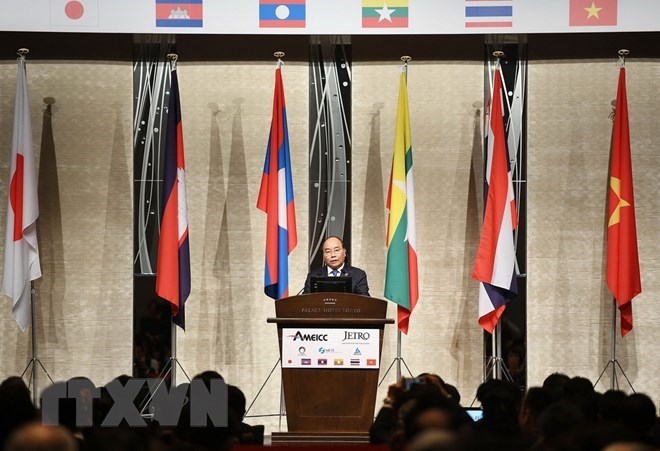 |
| Vietnamese Prime Minister Nguyễn Xuân Phúc speaks at the Mekong-Japan Business Forum in Tokyo yesterday.– VNA/VNS Photo Thống Nhất |
TOKYO – Vietnamese Prime Minister Nguyễn Xuân Phúc and leaders of other Greater Mekong Subregion (GMS) countries attended the Mekong-Japan Business Forum in Tokyo yesterday with the participation of 600 enterprises from the GMS nations and Japan.
Addressing the event, organised by the Japan External Trade Organisation (JETRO), the Vietnamese leader said that the Mekong region was rising with its determination, potential and strength.
According to JETRO, in recent years, the GMS region had changed rapidly in both “hard and soft” aspects. It was one of the regions with the fastest growth in the world, with average growth of 6 percent in 2017.
The GMS countries had agreed on a vision on the region with sustainable, harmonious, balanced and inclusive growth, Phuc said, highlighting the central role of the business community as the source of new ideas and a decisive factor for economic development.
He stressed that despite the unstable and complicated global economic situation, Vietnam had maintained a stable socio-political environment and firm macro-economic foundation. Vietnam held an important geopolitical, geo-economic and geo-commercial position in the region and the world, the PM said.
In the first nine months of 2018, the Vietnamese economy grew nearly 7 percent, ranking it among the best in the world in terms of economic growth, he noted.
The PM said that Vietnam and Japan had signed the Comprehensive and Progressive Agreement for Trans-Pacific Partnership (CPTPP), accelerated the signing of the Regional Comprehensive Economic Partnership (RCEP) and engaged deeply in global value chains.
Vietnam was a promising destination for multinational groups to diversify, renew and create differences, he said.
With a population of nearly 100 million people and an average age of 31, the majority of whom were well-trained, Vietnam had about 1.5 million people joining the global middle class each year. The figure was likely to reach 33 million people or 33 percent of the population in 2022.
Currently, 70 percent of mobile subscribers in Vietnam were using 3G and 4G services, and 72 percent of the population owned smartphones, with average ownership of 1.7 phones per person, he said, adding that the ratio of online shopping via mobile phones in Vietnam was 53 percent.
According to the PM, in September 2018, Vietnam successfully hosted the World Economic Forum (WEF) on ASEAN 2018 which was themed “ASEAN 4.0: Entrepreneurship and the Fourth Industrial Revolution”. This was the most successful WEF on ASEAN ever held over the last 27 years, attracting more than 1,000 businesses and many leaders, including of the five GMS countries and Japan.
Vietnam had attracted nearly 26,500 FDI businesses from 127 countries and territories, including many leading Japanese firms like Canon, Fujitsu, Toyota and Honda, with total registered capital of over US$330 billion.
According to a JETRO report released in February this year, nearly 70 percent of Japanese firms in Vietnam operated at a profit, and about 70 percent planned to expand their operations. Vietnam expected to have free trade agreements with 55 countries by 2020, including 15 nations in the G20, he noted.
PM Phuc stressed that Vietnam was working to build a growth-enabling and action-oriented Government that served people and businesses. By realising the high-standard commitments in new-generation free trade agreements, the investment and business climate in the country was becoming closer to advanced international standards, thus opening up chances to access many major markets around the world.
Vietnam prioritised attracting hi-tech investment in developing transport infrastructure, energy, manufacturing, agriculture, finance–banking and high-quality healthcare, he said, highlighting that: “The Vietnamese Government gives priority to the quality of investment projects instead of quantity.”
Regarding Vietnam-Japan relations, the government leader said their strategic partnership was now at its best with comprehensive and substantive development in all spheres. The year 2018 marked the 45th founding anniversary of diplomatic ties, but in fact, their trading activities dated back to the 16th century, he said.
The PM added that Japan was the biggest foreign investors in Vietnam last year with total FDI capital of $9 billion. Nearly 4,000 Japanese projects worth over $55 billion had invested in the Southeast Asian nation so far.
Vietnam’s economic growth prospect promised numerous co-operation and development opportunities for enterprises of the GMS countries and Japan, he said.
PM Phuc affirmed that the opinions of Japanese companies had always been respected and solved by the Vietnamese Government in a timely manner.
The implementation of the Vietnam-Japan Joint Initiative, launched in 2003, had helped improve the investment climate in Vietnam and been highly valued by Japanese investors. It was also one of the most effective information channels for local authorities to fine-tune laws and policies and help businesses, including Japanese enterprises, take part in the policy-making process of the Vietnamese Government, he added.
PM Phuc expressed his belief that with the GMS’s potential and the sound Mekong-Japan relationship, the GMS, including Vietnam, would be a trustworthy destination for investors. — VNS

